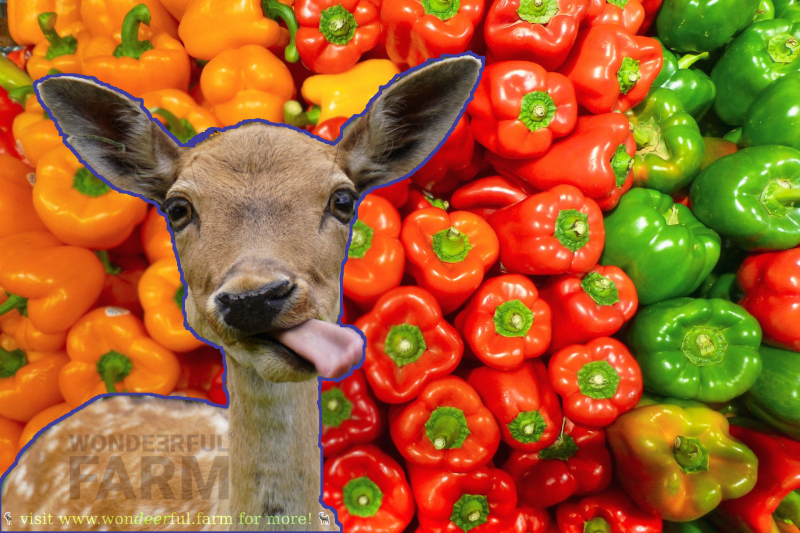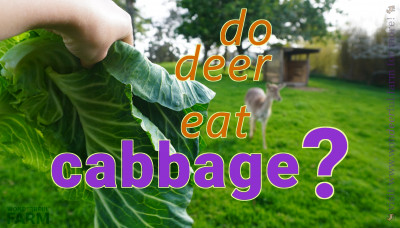Do Deer Eat Bell Peppers?
» Deer stories » Do deer eat » Do Deer Eat Bell Peppers?Bell peppers aren't generally favored by deer, making them somewhat deer resistant, but this can vary by location and by season.

When we first introduced capsicum fruits and leaves to our deer, they left them on the ground for a few days, and possibly even let them rot.
Since then they've gotten accustomed to bell peppers and their foliage, but still aren't very excited about them.
You can just see their enthusiasm for things like carrots, apples, or bananas and their 'oh well, guess I'll have a capsicum' kind of reaction. It's somewhere on the same scale with celery. Edible, but underwhelming.
Our deer are well fed so they can afford such fussiness, but wild herds elsewhere can be much less ‘spoilt’ and develop a taste for bell peppers quite quickly.
So far we’ve been talking about mild or sweet peppers btw, not hot.
Will deer eat hot pepper plants?
Growing jalapeno peppers may be a safer option because deer and other four-legged pests are less likely to bother hotter peppers. This is because the strong smell and taste of hot and spicy peppers, like chiles and jalapenos, repels most mammals.
The primary ingredient in hot peppers, capsaicin, is a super hot substance that deer can taste just as well as humans can.
When deer consume capsaicin, it causes an immediate irritation that they are unlikely to forget, which is why it is often included in homemade deer repellent solutions.
What other animals eat pepper plants?
Sweet bell pepper plants are commonly consumed by a variety of animals, including insects, mammals, and birds. Some of the most common animals, besides deer, that eat sweet bell pepper plants are:
- Aphids - These tiny insects suck sap from the leaves of the plant, causing damage and stunting growth.
- Caterpillars - Some caterpillar species, such as the tomato hornworm, feed on the leaves of sweet pepper plants.
- Rabbits - Rabbits are also known to eat sweet pepper plants, especially in vegetable gardens.
- Squirrels - Squirrels have been known to nibble on sweet pepper plants, especially the fruit.
- Birds - Some bird species, such as sparrows, can damage sweet pepper plants by feeding on the fruit.
Are bell peppers deer resistant?
How to keep deer away from capsicums?
If deer in your area have developed a liking for sweet peppers and you are unintentionally supplying them with a feast from your garden, you may be searching for methods to prevent these animals from consuming your crops. To protect your sweet bell pepper plants from these animals, you can use a variety of methods, such as fencing, netting, and repellents. We’ve covered probably all of them in our post here.
Why we're sometimes feeding our deer sweet peppers?
Our animals get all sorts of supplemental foods. Bell peppers are a nutritious vegetable that is low in calories but high in many vitamins and minerals. They're not toxic to deer while also being a good source of antioxidants, particularly vitamin C and carotenoids like beta-carotene and lutein. Deer thrive on a diverse diet when fed properly.
Last modified 25 September 2023 at 23:42
Published 28 February 2023
Add your comment
More «Do deer eat» stories
Do Deer Eat Watermelon?
Will deer eat watermelon rinds? Do deer eat the whole plant of watermelon: vines and fruits? How to protect watermelon patch.
read more...
Do Deer Eat Cabbage?
This post addresses the questions of both gardeners and those keen on feeding their local deer. Do deer enjoy cabbage and is it healthy for them to eat. How to protect cabbage crops from deer in your garden.
read more...
 '
'

